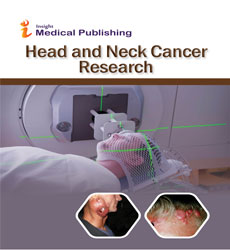Abstract
Where is that denture? A 10 year review of the complications of ingested and aspirated dentures
Introduction: Dentures are worn by 20% of the UK population and are an intervention for both physical and psychological symptoms associated with tooth loss. However, the humble denture can cause morbidity and mortality if swallowed or aspirated. Numerous case reports document complications including hollow viscus perforation, fistula formation and airway compromise. The purpose of this review was to examine the literature documenting cases of swallowed or aspirated dentures over the past 10 years to investigate factors that contribute to developing complications.
Methods: A Medline literature search was performed to identify cases of denture ingestion or aspiration over 10 years. Data was collected to include patient, appliance and temporal factors that may contribute to developing complications including hollow viscus perforation, fistula formation, abscess, bowel obstruction, necrosis and haemorrhage and airway obstruction. The data was analysed using observational and inferential statistics in the form of Chi Squared and Pearson correlation tests.
Results: Eighty five cases of ingested or aspirated dentures were identified from 77 articles published between 1/10/2009 and 31/10/2019. Fourteen articles were excluded as sufficient information on individual cases was not presented. Complications were documented in 37.6% of patients and 2 cases resulted in death. There was no significant difference in complication risk based on patient age, hooked appliance, level of impaction or radiolucency. However, symptoms of greater than 1 day duration is associated with an increased risk of complication (p=0.005). Additionally, increased time from ingestion or aspiration to removal is associated with an increased risk of complications, the p value remains significant up to and including day 4 (p=0.017).
Conclusions: With denture use predicted to rise complications from denture ingestion and aspiration may become more frequent. We have demonstrated that increased symptom duration significantly increases the risk of developing complications. Additionally we established the risk of developing complications is significantly reduced if the denture is removed with 4 days of aspiration or ingestion. By actively intervening early when presented with a case of swallowed or aspirated dentures we may be able to reduce the morbidity associated with this unassuming device.
Author(s):
Jessica Daniels, Babatunde Oremule and William Tsang
Abstract | PDF
Share this

Google scholar citation report
Citations : 28
Head and Neck Cancer Research received 28 citations as per google scholar report
Abstracted/Indexed in
- Google Scholar
- JournalTOCs
- China National Knowledge Infrastructure (CNKI)
- WorldCat
- Publons
- Secret Search Engine Labs
Open Access Journals
- Aquaculture & Veterinary Science
- Chemistry & Chemical Sciences
- Clinical Sciences
- Engineering
- General Science
- Genetics & Molecular Biology
- Health Care & Nursing
- Immunology & Microbiology
- Materials Science
- Mathematics & Physics
- Medical Sciences
- Neurology & Psychiatry
- Oncology & Cancer Science
- Pharmaceutical Sciences


